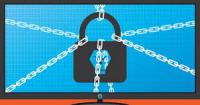-
Making it Easier to Program and Protect the Web
Behind the scenes of every web service, from a secure web browser to an entertaining app, is a programmer’s code, carefully written to ensure everything runs quickly, smoothly, and securely. MIT Professor Adam Chlipala builds tools to help programmers more quickly generate optimized, secure code.
-
-
The Russian Submarine that Caught Fire and Killed 14 May Have Been Designed to Cut Undersea Internet Cables
A Russian navy submarine caught fire on Monday, killing 14 sailors on board. Two independent Russian news outlets reported that the vessel was the AS-12 “Losharik,” a nuclear-powered vessel that US officials have said is designed to cut undersea cables that keep the world’s internet running. Alexandra Ma and Ryan Pickrell write in Business Insider that Moscow officials have remained secretive about the type of vessel and whether it was nuclear-powered, prompting accusations of a cover-up. President Vladimir Putin canceled a scheduled event on Tuesday and told his defense minister to “personally receive reports” on the investigation into the accident, Radio Free Europe/Radio Liberty reported.
-
-
Global cybersecurity experts gather at Israel’s Cyber Week
The magnitude of Israel’s cybersecurity industry was on full show this week at the 9th Annual Cyber Week Conference at Tel Aviv University. The largest conference on cyber tech outside of the United States, Cyber Week saw 8,000 attendees from 80 countries hear from more than 400 speakers on more than 50 panels and sessions.
-
-
The U.S. needs an industrial policy for cybersecurity
Industrial policies are appropriate when market failures have led to the under-provision of a good or service. The cybersecurity industry’s growth has been held back for several reasons, including intractable labor shortages. Vinod K. Aggarwal and Andrew W. Reddie write in Defense One that both the United States and United Kingdom suffer from a documented shortage of skilled programmers and computer scientists working on cybersecurity issues, and the U.S. alone is projected to have a shortage of 1.2 million professionals by 2022, according to the Center for Strategic and International Studies. The market has also been hindered by so-called “information problems,” as firms are often not aware of their own vulnerabilities and avoid sharing information about data breaches given the reputation costs associated with disclosure. So what can the government do about it?
-
-
Google cuts Huawei access to Android software updates
Google said on Sunday it was rescinding Huawei’s license to use Google’s mobile phone operating system Android, and Google services such as Google maps and YouTube. The move will force the Chinese technology company to rely on an open-source version of the software. The move follows a presidential executive order prohibiting American companies from using telecommunications equipment made by “foreign adversaries” viewed as posing a threat to U.S. national security.
-
-
China: Determined to dominate cyberspace and AI
China is chasing dominance in emerging artificial intelligence (AI) technologies in both the private and military sectors, as a central part of its effort to be the leading global cyber power, Chris C. Demchak writes in the Bulletin of the Atomic Scientists. The rise of AI – a subset of cyber as are machine learning, quantum computing, and other new technologies – does not herald a new arms race equivalent to that of the Cold War. Rather, the concern should be on the profound disruption to the existing Westernized global order. In the 1990s, Western nations, led by the United States, created what Demchak calls a “Westernized national creation”: cyberspace. Cyberspace, however, has created a multitude of ubiquitous, embedded vulnerabilities whose easy exploitation directly accelerated the rise of an otherwise impoverished authoritarian and aggressive China. Today, no single democracy has the scale and sufficient resources alone to match the foreknowledge and strategic coherence of the newly confident and assertive China. There is thus a need to create a Cyber Operational Resilience Alliance (CORA) to provide the scale and collective strategic coherence required to ensure the future wellbeing and security of democracy in an overwhelmingly authoritarian, post-Western, cybered world.
-
-
Enabling more comprehensive tests on high-risk software
We entrust our lives to software every time we step aboard a high-tech aircraft or modern car. A long-term research effort has developed new tools to make this type of safety-critical software even safer.
-
-
Can WiFi networks be completely secure?

There are many ways in which hackers and crackers can break into a Wi-Fi network. It is trivial if the network uses out of date security protocols or weak passwords. But even if the system is set up with the latest security measures, strong passwords, and firewall and malware protection, there are still ways and means that a malicious third party might access such a network.
-
-
Identifying new way to improve cybersecurity

With cybersecurity one of the nation’s top security concerns and billions of people affected by breaches last year, government and businesses are spending more time and money defending against it. Researchers have identified a new way to improve network security.
-
-
Biologically inspired network protection software
Electrical engineers look to the human immune system for clues on how to best protect digital networks. It’s a concept that’s beginning to be explored more and more by researchers in a variety of fields: What does the human body do well and how can we adapt those mechanisms to improve technology or engineering systems?
-
-
British oversight body: Security flaws in Huawei 5G networks
A British oversight board has slammed the Chinese telecom giant Huawei for software security flaws. The report, however, stopped short of blaming Chinese intelligence agencies for the engineering defects. The United States is concerned that Huawei is a front for the Chinese intelligence services, and that rolling out Huawei’s 5G system in Europe would open the door for Chinese spying or sabotage.
-
-
Mega European project on cybersecurity and data protection
A new European Commission cyber project aims to set international standards in cybersecurity and boost the effectiveness of Europe’s security capacities.
-
-
Expanding cybersecurity education to fill job market shortfall
Experts say that the U.S. cyber workforce shortfall is growing. By the 2022, the shortage of cybersecurity professionals is predicted to be 1.8 million. Colleges and universities expand their cybersecurity education offerings.
-
-
Developing a system to identify, patch software security holes
DARPA is funding research of security vulnerabilities in web software. A new system called GAMEPLAY (for Graph Analysis for Mechanized Exploit-generation and vulnerability Patching Leveraging human Assistance for improved Yield) will spot security weaknesses in the millions – sometimes billions – of lines of code that run websites including banking and online shopping which are attractive to hackers.
-
-
Is your VPN secure?
About a quarter of internet users use a virtual private network, a software setup that creates a secure, encrypted data connection between their own computer and another one elsewhere on the internet. Many people use them to protect their privacy when using Wi-Fi hotspots, or to connect securely to workplace networks while traveling. Other users are concerned about surveillance from governments and internet providers. However, most people – including VPN customers – don’t have the skills to double-check that they’re getting what they paid for. A group of researchers I was part of do have those skills, and our examination of the services provided by 200 VPN companies found that many of them mislead customers about key aspects of their user protections.
-
More headlines
The long view
States Rush to Combat AI Threat to Elections
By Zachary Roth
This year’s presidential election will be the first since generative AI became widely available. That’s raising fears that millions of voters could be deceived by a barrage of political deepfakes. Congress has done little to address the issue, but states are moving aggressively to respond — though questions remain about how effective any new measures to combat AI-created disinformation will be.
Tantalizing Method to Study Cyberdeterrence
By Trina West
Tantalus is unlike most war games because it is experimental instead of experiential — the immersive game differs by overlapping scientific rigor and quantitative assessment methods with the experimental sciences, and experimental war gaming provides insightful data for real-world cyberattacks.
